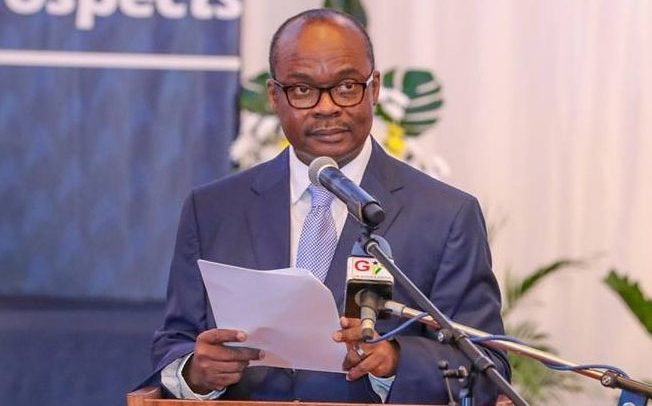The COVID-19 pandemic onslaught has actually fast-tracked the country’s digitisation process. In many respects, it has enhanced the digital uptake pace.
However, PricewaterhouseCoopers (PwC) Ghana’s 2020 Banking Survey suggests that some workers in the banking sector face the imminent danger of losing their jobs following the COVID-19-induced digital transformation of banking.
Indeed, there are genuine fears that the new norm will ultimately lead to the shedding of workers whose jobs have become automated.
12.5% of banks confirmed that they have already begun and will continue to realign the job roles and work team structures to the new way of working in order to maximise efficiencies of digital banking, and ensure less paper operations and requirements for social distancing.
“In the long run, these measure may result in possible lay-offs for some whose jobs become automated,” the report notes. Hence, PwC’s country senior partner, Vish Ashiagbor, cautions that for workers to survive the digital progression, they will have to upgrade their skills to remain relevant.
In saying this, however, there is no immediate need for any panicky situation since Mr. Ashiagbor stated that the feedback PwC got from the respondents is not suggestive of a total transformation in Ghana’s banking sector.
But from the responses given by bank executives, there are indications of remarkable progress along the digital journey. That notwithstanding, investments made by banks in technology have enabled the industry to support customers during these uncertain times.
The benefits of the ‘new normal’ will surely continue to change the way banking business is done going forward, and we need to gear-up ourselves for a digitally transformed banking sector going forward.
There is widespread concern today that many jobs will be lost to new computer technologies, as more human tasks can be performed by machines. Government and businesses need to work together on helping people adjust to these new technologies through retraining and career changes.
Economic downturns, some argue, bring about increased levels of automation – which is already an existential threat to many jobs. This has been amply demonstrated by the COVID pandemic.
Lack of proper transparency in extractive sector debilitating
The Ghana Extractive Industries Transparency Initiative (GHEITI) 2017/2018 report has revealed that disbursement of mineral royalties to communities affected by mining activities left a two- and half-year gap unpaid and unaccounted for.
GHEITI says data gathered from the Office of Administration of Stool Lands (OASL) indicate that the last transfer of mineral royalty receipt to communities impacted by mining was made from payments by mining companies in the period April to June 2014.
This deviation period, June 2014 to January 2017, is approximately two and half years of non-payment of mining royalties, for which GHEITI is urging the mining communities and the OASL to keenly follow-up the situation and ensure that any lost revenue is recovered – because mining activities took place extensively during that period.
Dr. Steve Manteaw, Co-Chairperson of GHEITI, is of the opinion that if citizens do not open their eyes to scrutinise how revenues from extractives are used for development projects, the state will be short-changed by some influential individuals for personal interest.
Guided by the belief that a country’s natural resources belong to its citizens and that bad corporate practices are counterproductive, the EITI has established a global standard to promote the open and accountable management of oil, gas and mineral resources.
EITI Standards require the disclosure of information along the extractive industry value chain: from how extraction rights are awarded, to how revenues make their way through government, and how they benefit the public.
It is therefore quite intriguing that GHEITI’s 2017/2018 report has revealed some discrepancies which ought to be interrogated so answers can be provided. The OASL has the responsibility to recover such monies since it is obligatory.
For a country that is so endowed with mineral wealth, it is inexcusable for communities in mining enclaves to be so deprived and poverty-stricken; that is why transparency along the extractive value chain is most crucial to both government and the citizenry.
‘Resource curse’ is the observation that countries endowed with a rich natural resources struggle to make effective use of them, and often end up with lower levels of economic development than countries with low amounts of natural resources.
Examples of resource-rich countries with relatively poor rates of economic growth, include Angola, Sierra-Leone and Nigeria. However, Resource-poor countries such as Korea, Taiwan and Singapore, in contrast have experienced better rates of economic growth.
We cannot allow Ghana to fall into that category, so we must learn crucial lessons from countries that have low levels of development even though they are considered resource-rich. The country’s mineral wealth belongs to Ghanaians as a whole, but it is vested in the president.
We need a better appreciation and account of how such wealth is distributed.










